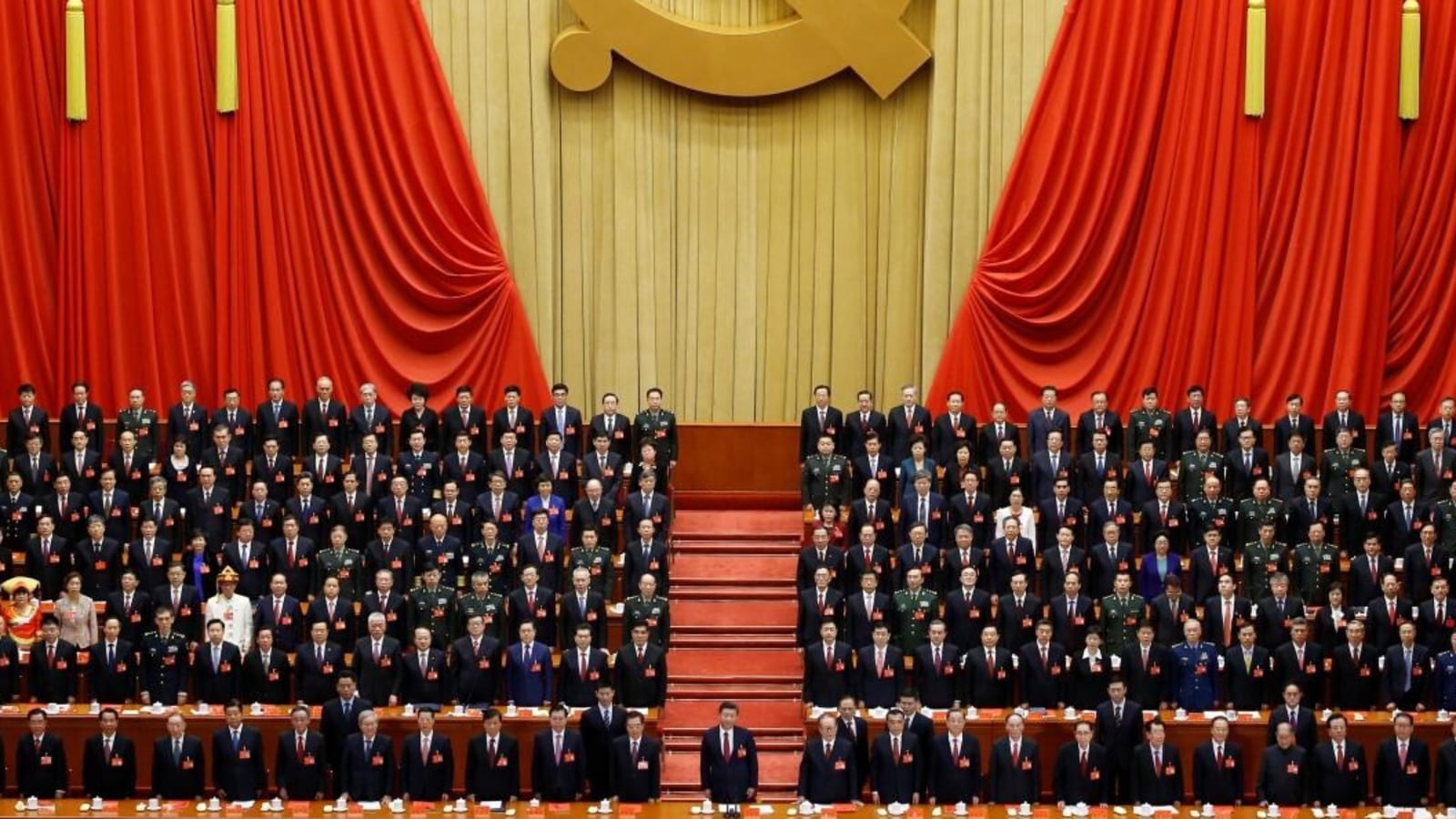Xi prepares for third term, clock ticks on Taiwan | World News

With the Central Committee of the Communist Party of China passing the historical resolution on Thursday, President Xi Jinping has joined the pantheon of Communist gods along with party founder Mao Zedong and reformer Deng Xiaoping and paves way for his third term as paramount leader next autumn.
While the historical resolution sings paean for “Xi Jinping” thought, it glosses over the humongous turmoil, devastation and political upheavals of the 1950s, 60s and 70s during the Mao era. Unlike the 1981 resolution under Deng that pointed to mistakes during Mao’s cultural revolution, the 2021 resolution simply refers to the period as one of socialist revolution and construction. The clout of President Xi is quite evident as he is mentioned 17 times in the historical resolution as compared to Mao, who features seven times and economic reformer Deng mere five times.
Albeit the resolution passed during the centennial celebration talks about the Communist Party’s goal of turning China into a “great modern socialist country” by 2049, the centennial of the People’s Republic, it is quite evident that President Xi is in a hurry to consolidate China with Taiwan a priority after integration of Hong Kong. The Peoples’ Liberation Army (PLA), which is headed by President Xi, made its intentions quite clear after nearly 56 Chinese fighters and bombers violated the south-western air defence identification zone of Taiwan on October 4. The PLA is already testing its long-range missiles on mock-up targets of American aircraft carriers and destroyers in the Taklamakan desert and the PLA navy is aggressive in the South China Sea and larger Indo-Pacific with its propaganda machinery working at full steam.
Chinese Communist Party watchers believe that Beijing will translate the “One China” policy from mere words to reality sooner than later as it sees an opportunity in perceived weak US leadership, fractured European Union and suppliant ASEAN countries. The perception of weak US leadership has been strengthened by the disastrous withdrawal of American troops from Afghanistan with rag-tag black turban and sandal-wearing militia getting a carte blanche from Washington in Doha and once a celebrated US ally, Pakistan, cheering the Taliban capture of Kabul.
That the US is not the military power which it used to be was evident when White House officials hurriedly added a caveat of no change in American “One China” policy after President Joe Biden publicly announced that theUS would militarily defend Taiwan against China military action. The Biden leadership will further weaken politically if Democrats lose the Congress to Republicans next year and this seems to be the upcoming reality as poll numbers for the President dive.
The argument that the AUKUS pact will act as a deterrence to Chinese aggression does not work as it will take at least a decade for Australia to train its crew on nuclear-powered submarines and another to acquire them and that too on highly optimistic estimates. Just like the PLA Navy has realised how tricky is naval aviation, operating nuclear submarines even with conventional weapons is another dimension, which the Australians will also come to know.
While China under President Xi will ratchet pressure on Taiwan in the coming months, it is will tighten its grip on the Af-Pak region for its energy security through client state Pakistan. Already there is a talk of China building a $15 billion oil pipeline from Gwadar to Xinjiang to circumvent the comparatively arduous Malacca Straits with the Middle-East crude oil being refined at the Baluchistan port. With the Chinese also looking at laying an optical fibre network to link Pakistani villages on both sides of the CPEC corridor, Beijing will have a vice-like grip on Islamabad and consequently put more pressure on India. Transportation of oil through Gwadar will not only strengthen Chinese energy security but also reduce the global leverage of Malacca and other ingress routes to the South China Sea.
Even as China is committed to implementing Comrade Xi Jinping’s new era of socialism with Chinese characteristics, the world is already experiencing the rise of aggressive China with its neighbours feeling the heat. While Beijing seems to be in relentless pursuit of its 2049 goals, its immediate adversaries like Japan are still mulling over junking its pacifist doctrine with Russia still viewing the world through bygone cold war calculus. The clock is already ticking on Taiwan.

“평생 사상가. 웹 광신자. 좀비 중독자. 커뮤니케이터. 창조자. 프리랜서 여행 애호가.”
